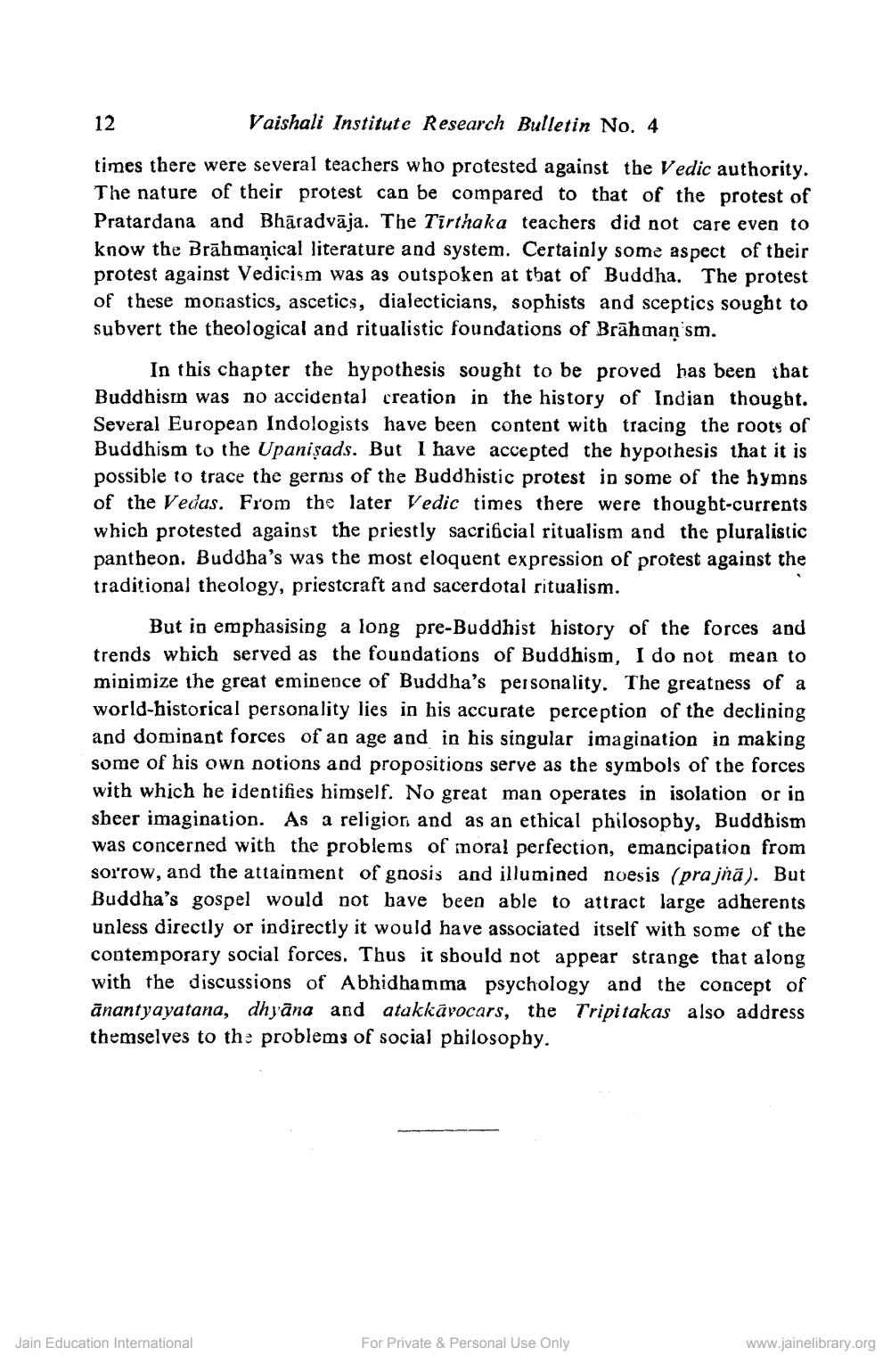________________
12
Vaishali Institute Research Bulletin No. 4
times there were several teachers who protested against the Vedic authority. The nature of their protest can be compared to that of the protest of Pratardana and Bhāradvāja. The Tirthaka teachers did not care even to know the Brāhmaṇical literature and system. Certainly some aspect of their protest against Vedicism was as outspoken at that of Buddha. The protest of these monastics, ascetics, dialecticians, sophists and sceptics sought to subvert the theological and ritualistic foundations of Brāhman'sm.
In this chapter the hypothesis sought to be proved has been that Buddhism was no accidental creation in the history of Indian thought. Several European Indologists have been content with tracing the roots of Buddhism to the Upanişads. But I have accepted the hypothesis that it is possible to trace the germs of the Buddhistic protest in some of the hymns of the Vedas. From the later Vedic times there were thought-currents which protested against the priestly sacrificial ritualism and the pluralistic pantheon. Buddha's was the most eloquent expression of protest against the traditional theology, priestcraft and sacerdotal ritualism.
But in emphasising a long pre-Buddhist history of the forces and trends which served as the foundations of Buddhism, I do not mean to minimize the great eminence of Buddha's personality. The greatness of a world-historical personality lies in his accurate perception of the declining and dominant forces of an age and in his singular imagination in making some of his own notions and propositions serve as the symbols of the forces with which he identifies himself. No great man operates in isolation or in sheer imagination. As a religion and as an ethical philosophy, Buddhism was concerned with the problems of moral perfection, emancipation from sorrow, and the attainment of gnosis and illumined noesis (pra jñā). But Buddha's gospel would not have been able to attract large adherents unless directly or indirectly it would have associated itself with some of the contemporary social forces. Thus it should not appear strange that along with the discussions of Abhidhamma psychology and the concept of ānantyayatana, dhyāna and atakkāvocars, the Tripitakas also address themselves to the problems of social philosophy.
Jain Education International
For Private & Personal Use Only
www.jainelibrary.org




